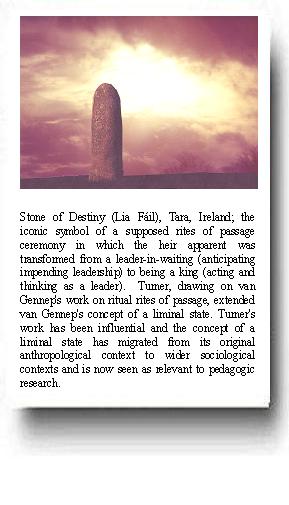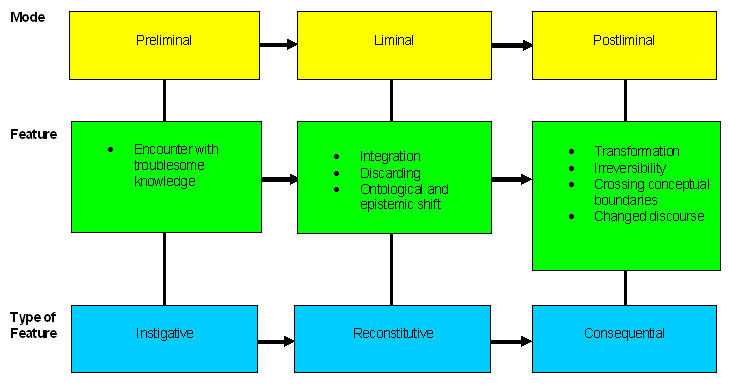
|
References
Cousin, G. (2006a), An introduction to threshold concepts,
Planet No 17, December 2006, pp 4-5.
[http://www.gees.ac.uk/planet/p17/gc.pdf last accessed 25 June 2008]
Cousin, G. (2006b) Threshold concepts, troublesome knowledge and and emotional capital: an exploraton into learning about others
in: Overcoming Barriers to Student Understanding: threshold concepts and troublesome knowledge, edited by Jan H. F. Meyer and Ray Land,
Routledge - Taylor & Francis Group, London and New York, pp 134-147 [book details].
Land, R., Meyer, J.H.F. and Baillie, C. (2010) Editors’ Preface: Threshold Concepts and Transformational Learning,
in: Threshold Concepts and Transformational Learning, Land, R., Meyer, J.H.F. and Baillie, C., (eds), Sense Publishers, Rotterdam, pp. ix-xlii, [book details].
Land, R., Cousin, G., Meyer, J.H.F. and Davies, P. (2005), Threshold concepts and troublesome knowledge (3): implications for course design and evaluation,
In: C. Rust (ed.), Improving Student Learning - diversity and inclusivity, Proceedings of the 12th Improving Student Learning Conference. Oxford: Oxford Centre for Staff and Learning Development (OCSLD), pp 53-64.
[http://www.brookes.ac.uk/services/ocsld/isl/isl2004/abstracts/conceptual_papers/ISL04-pp53-64-Land-et-al.pdf last accessed 10 August 2009]
FURTHER LIMINALITY REFERENCES
Click here for the list of all the papers that are included in this bibliography and have liminal or liminality in the title.
|

